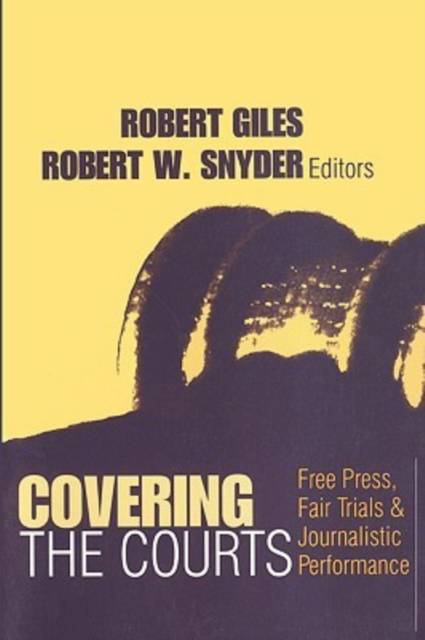
En raison d'une grêve chez bpost, votre commande pourrait être retardée. Vous avez besoin d’un livre rapidement ? Nos magasins vous accueillent à bras ouverts !
- Retrait gratuit dans votre magasin Club
- 7.000.000 titres dans notre catalogue
- Payer en toute sécurité
- Toujours un magasin près de chez vous
En raison de la grêve chez bpost, votre commande pourrait être retardée. Vous avez besoin d’un livre rapidement ? Nos magasins vous accueillent à bras ouverts !
- Retrait gratuit dans votre magasin Club
- 7.000.0000 titres dans notre catalogue
- Payer en toute sécurité
- Toujours un magasin près de chez vous
90,45 €
+ 180 points
Format
Description
Covering the Courts shows how writers and journalists deal with present-day major trials, such as those involving Timothy McVeigh and O.J. Simpson. The volume features such outstanding contributors as Linda Deutsch and Fred Graham, and provides an in-depth look at the performance of the court in an age of heightened participation by reporters, camera operators, social scientists, major moguls of network radio and television, and advocates of special causes.The volume does far more than discuss specific cases. Indeed, it is a major tool in the study of the new relationships between a free press and a fair trial. Interestingly, a consensus is described in which the parties involved in efforts to balance freedom of the press and the right to a fair trial are moving in tandem. In this regard, sensitive issues ranging from the universality of law to the particularity of racial, religious, and gender claims, are explored with great candor.The volume also turns the intellectual discourse to its major players: the members of the press, the lawyers, and the judiciary. Has there been a shift from reporting functions to entertainment values? Does television and live presentation shift the burden from the contents of a case to the photogenic and star quality of players? What excites and intrigues the public: serious disturbances to the peace and mass mayhem, such as the Oklahoma bombings or sexual adventures of entertainment and sports figures? The findings are sometimes disturbing, but the reading is never dull. This book will be of interest to journalists, lawyers, and the interested general public.This volume is the latest in the Transaction Media Studies Series edited by Everette E. Dennis, dean of the school of communication at Fordham University. The volume itself is edited by Robert Giles, the editor, and Robert W. Snyder, the managing editor, of Media Studies Journal. The original contributions were initially presented at The Freedom Forum and its Media Studies Center.
Spécifications
Parties prenantes
- Auteur(s) :
- Editeur:
Contenu
- Nombre de pages :
- 158
- Langue:
- Anglais
- Collection :
Caractéristiques
- EAN:
- 9780765804624
- Date de parution :
- 31-01-99
- Format:
- Livre broché
- Format numérique:
- Trade paperback (VS)
- Dimensions :
- 153 mm x 230 mm
- Poids :
- 249 g

Les avis
Nous publions uniquement les avis qui respectent les conditions requises. Consultez nos conditions pour les avis.






